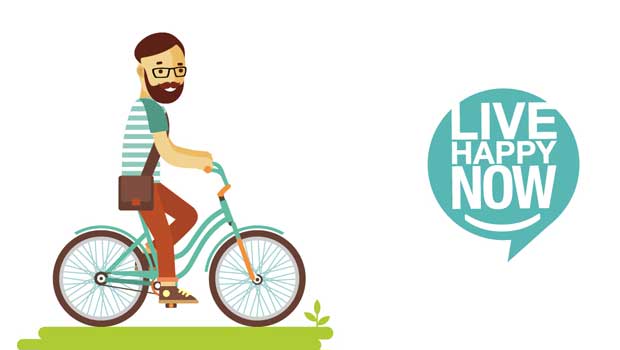Financial stress can send us on an emotional rollercoaster that makes even the most even-keeled and happy of us feel distressed and out of sorts. As adults we are expected to somehow know how to handle money, yet few of us have been properly taught how to manage it correctly.
How you feel about money comes largely from your childhood experiences—baggage you have accumulated, and skills and habits (both good and bad) that you’ve picked up along the way. While many financial problems are outside our control, you empower you to feel more in control of your finances by using the resources available to you. In addition, you can identify your self-defeating spending habits and find a way to stop them.
Do you find yourself engaging in any of these habits?
1. Burying your head in the sand
Do you willfully avoid thinking about money? Do you let bills pile up, engage in reckless shopping when you know you don't have the funds or avoid looking at bank statements because you don't want to see what's there?
2. Filling the hole
Some people spend money compulsively as a way to fill a void. That void could be caused by any number of things, from a bad day to a bad marriage. If you indulge in this kind of spending, you'll quickly learn that the hole can never be filled with anything you can buy. You'll be much better off investing in sessions with a qualified therapist who can get to the root of what's bothering you (and in the end you'll save yourself a lot of money).
3. Using money as a weapon
You have a spouse whom you know will get angry if you spend big bucks on a "frivolous" night out with the guys, but you do it anyway, without calling her, twice. This is a not-so-passive aggressive way of using money as the weapon. Or, a spouse or parent might be unreasonably tight with money, using it as a means to control the other person. This, too, is an example of using money as a weapon.
4. Penny-pinching
Being thrifty is usually a virtue, but it can become a pathology when you have such a fear of losing money that you hold onto every penny, putting unnecessary stress on your own life and those around you. Sometimes it makes sense to buy new clothes or new furniture. Maybe you don't need to wrap those dinner rolls in a napkin; just leave them on the table—you won't starve. You only live once; it's OK to treat yourself to a few beautiful new things.
5. Digging the hole deeper
Let's say you know your expenses have already exceeded your income for the month. If you are the kind of person who thinks in extremes, you might say, "Well hey, in that case, why not just go all out and blow the rest on a cruise to the Bahamas!" Turns out, not such a good idea.
Read more: Acts of Thanksgiving
And now for a little bit of help. Here are five ways to improve your financial health and become more balanced if you find yourself on the road to financial disaster:
1. Check in with reality
The mathematics are pretty simple: How much do you need to live each month and how much do you actually have? Do you need to earn more money in order to be able to pay for the lifestyle you have (or want)? Or do you need to cut back on spending?
2. Recovery
Do traumatic experiences from your past negatively impact the way you spend or save money now? Get help so you can work through those underlying problems. You can’t change the past but you can take control of your finances in the present and future.
3. Prevention
We're not saying you have to be obsessed with money, watch CNBC all day long or count every penny, but you need to be aware of your finances and have a plan if things change. Are you prepared if you should suddenly have a big expense such as a home repair? Are you prepared for something bigger like the loss of your job or your spouse's job? If at all possible, make sure you have a safety net.
4. Education
Stay informed about your own finances as well as the financial world. If you don’t have skills to manage money, educate yourself—you can build those skills.
You will find an abundance of websites that offer free resources on financial literacy:
MyMoney.gov was developed by the federal government to increase our financial know-how.
360 Degrees of Financial Literacy is a non-profit resource put together by the national association of CPAs.
The financial behemoth Visa offers its own free advice at Practical Money Skills
5. Support and resources
Reach out for help when you don’t know how to manage things. If you just need a little support or information, you can start by turning to a knowledgeable friend, picking up a book by someone like Suze Orman or speaking to someone at your bank.
Sometimes it may be a matter of consolidating and paying down debt, or you may even be considering bankruptcy. One low-cost resource is the non-profit National Foundation for Credit Counseling. In addition, the federal government has a website on choosing a credit counselor. If you're a student, you can also consult with a credit counselor or financial aid office at your school or university; they can often provide resources to help your resolve your challenges.
Read more: 11 Steps to a Braver You
Stacy Kaiser is a licensed psychotherapist, author, relationship expert and media personality. She is also the author of the best-selling book, How to Be a Grown Up: The Ten Secret Skills Everyone Needs to Know, and an editor-at-large for Live Happy. Stacy is a frequent guest on television programs such as Today and Good Morning America.
Read More









